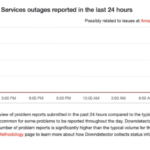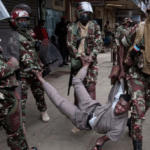
Plague Outbreak- Kitui Plans to Vaccinate 600,000 Goats and Sheeps
Reading Time: 2 minutesIn response to a severe plague outbreak. The Kitui County Government has collaborated with Veterinaires Sans Frontiers (VSF) from Germany to administer vaccinations to goats and sheep. The plague affecting goats and sheep is a highly contagious viral disease observed in small ruminants. It is characterized by symptoms such as fever, pneumonia, diarrhea, and inflammation of the respiratory and digestive tracts. On Sunday, Stephen Mbaya Kimwele. The Agriculture and livestock executive reported that the plague had already resulted in the deaths of lambs and kids in various areas. In a phone statement, Kimwele mentioned that the primary hotspots for the outbreak are concentrated in the peripheral sub-counties of Mwingi North, Mwingi Central, and Kitui East. “Although vaccination will take place in all wards in Mwingi North and Mwingi Central sub-counties. In Kitui east sub-county only Mutitu-Kaliku, Nzombe-Mwitika, and Voo-Kyamatu wards will be covered in the drive”, he said. Kimwele announced that, through the collaboration with VSF Germany. They aim to administer vaccination to 600,000 goats and sheep. “The program is for one year. Vaccinations are scheduled to start in February 2024 subject to the ability to confirm the outbreak. The carrying out of the pre-vaccination survey, vaccines availability, and facilitation,” he said. The CEC further stated that the Kitui County government will offer technical assistance. As well as provide vehicles, motorcycles, and cool boxes. They will also be responsible for compiling reports to ensure the success of the vaccination campaign. The VSF Germany will oversee the procurement of vaccines and other necessary equipment, facilitate training sessions, conduct analyses of livestock movement, carry out surveillance activities, administer livestock vaccinations, and handle the payment of staff involved in the vaccination campaign. The CEC mentioned that on January 19, he spearheaded a consultative meeting with officers from his department. Including Chief Livestock Officer Jonathan Kyambi, and the team from VSF Germany led by Dr. Sylvester Wakhu. Read Also: A Comprehensive Review of the OnePlus Open Foldable Smartphone During the meeting, the participants deliberated on optimal strategies for managing the goat and sheep plague outbreak. Kimwele highlighted that the discussions also addressed the implementation of comprehensive surveillance to understand livestock movement patterns within and around the outbreak hotspots, aiming to facilitate effective containment measures. ” It was agreed that sheep and goat vaccination exercise will start in a fortnight preceded by a score-surveillance of the hot spots areas slated for Monday next week,” Kimwele said.







